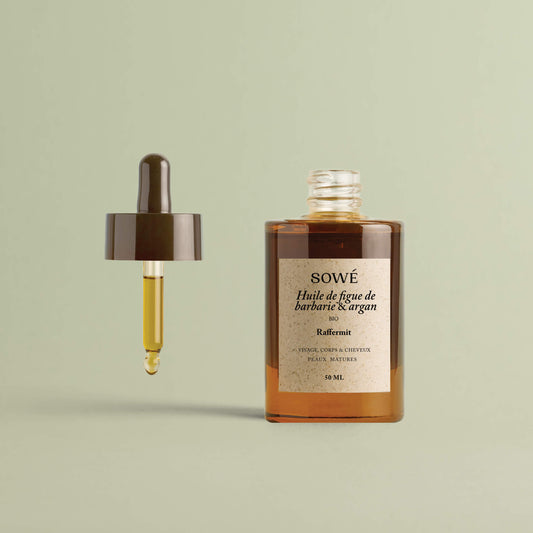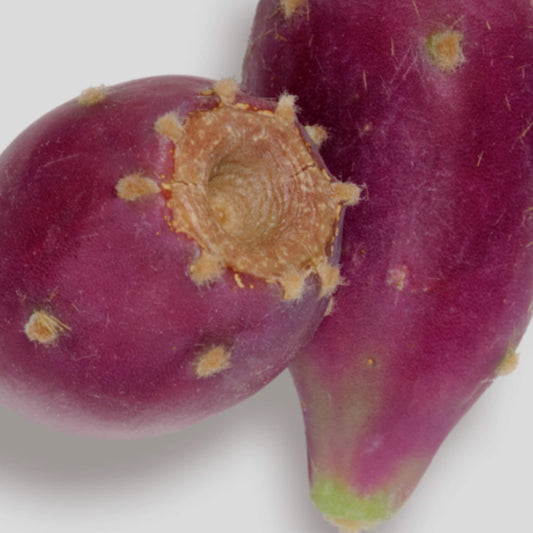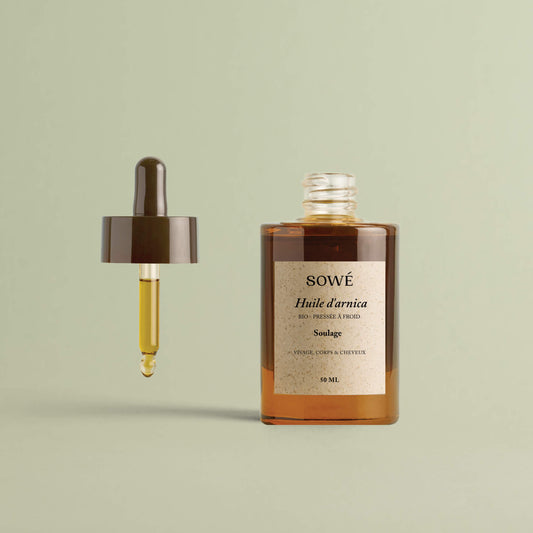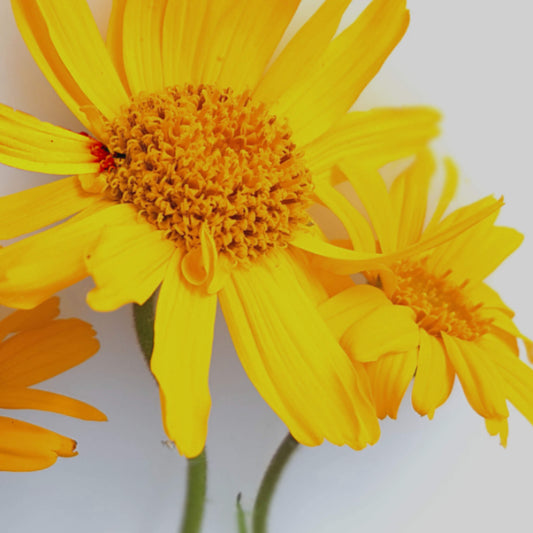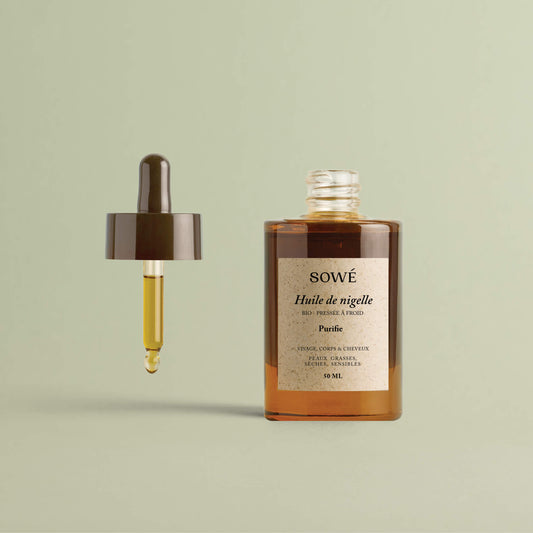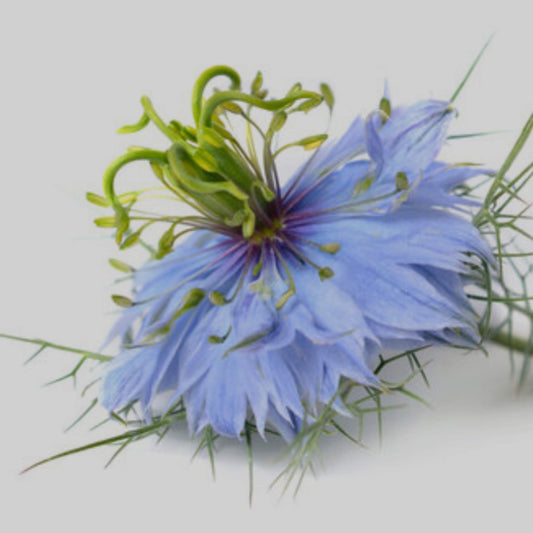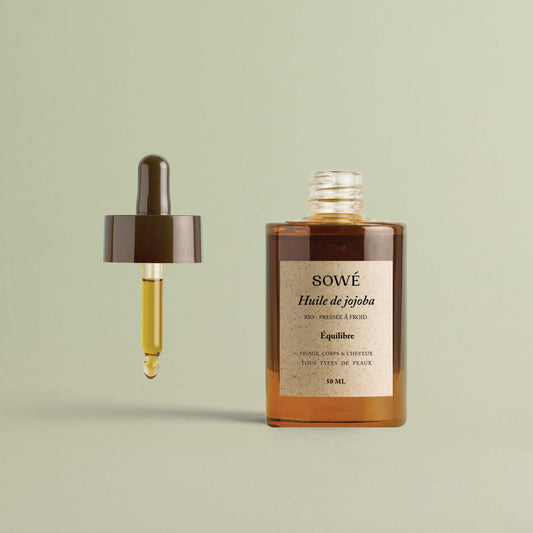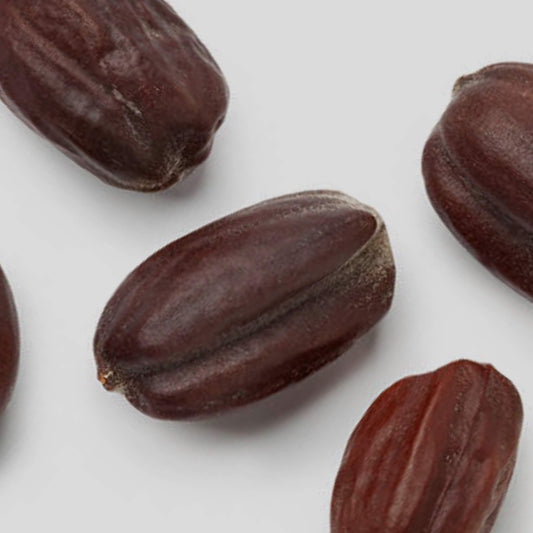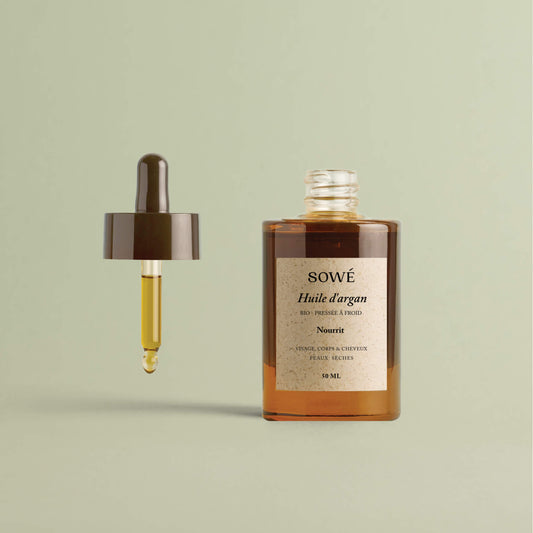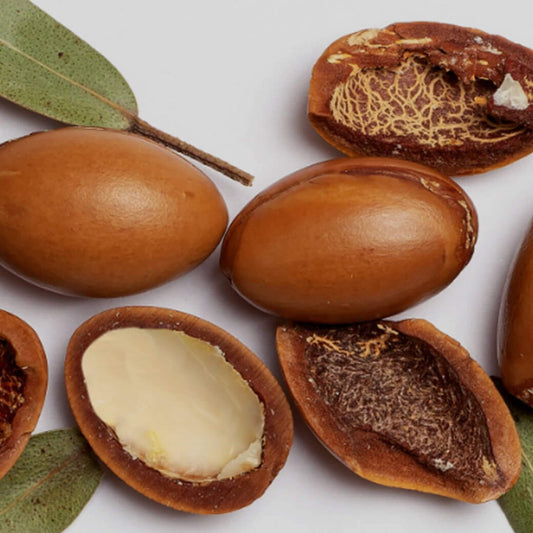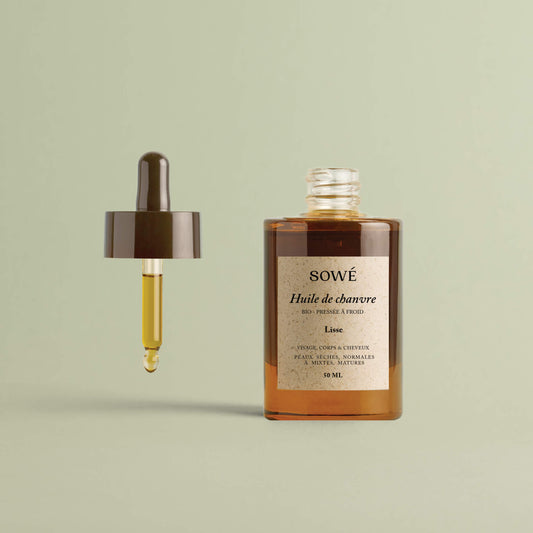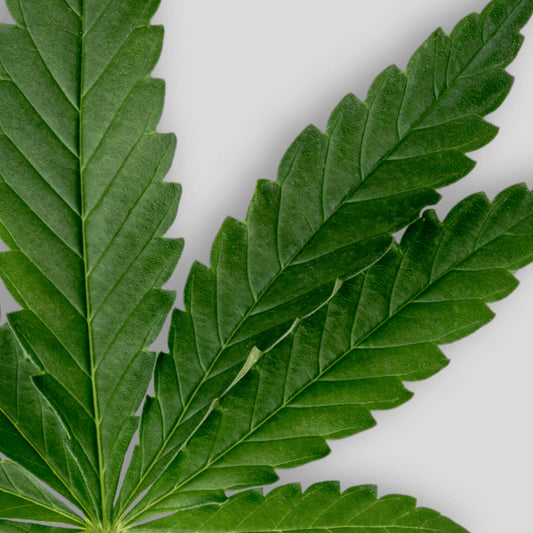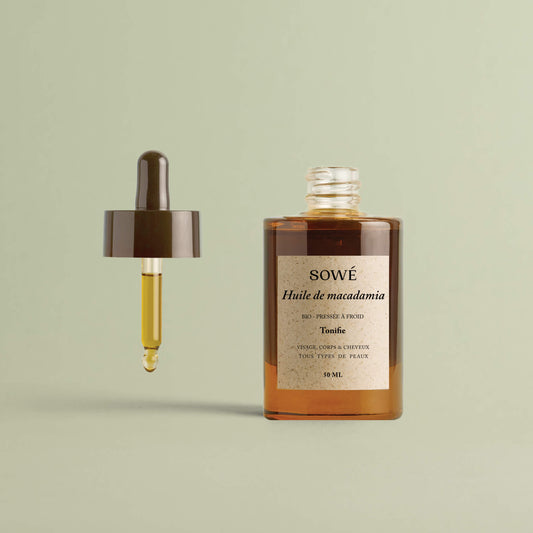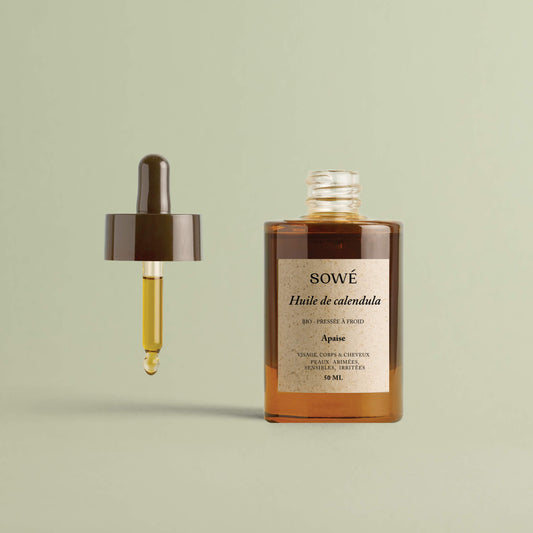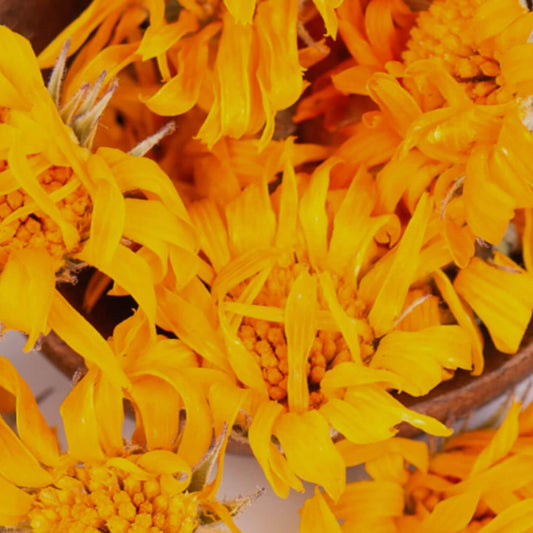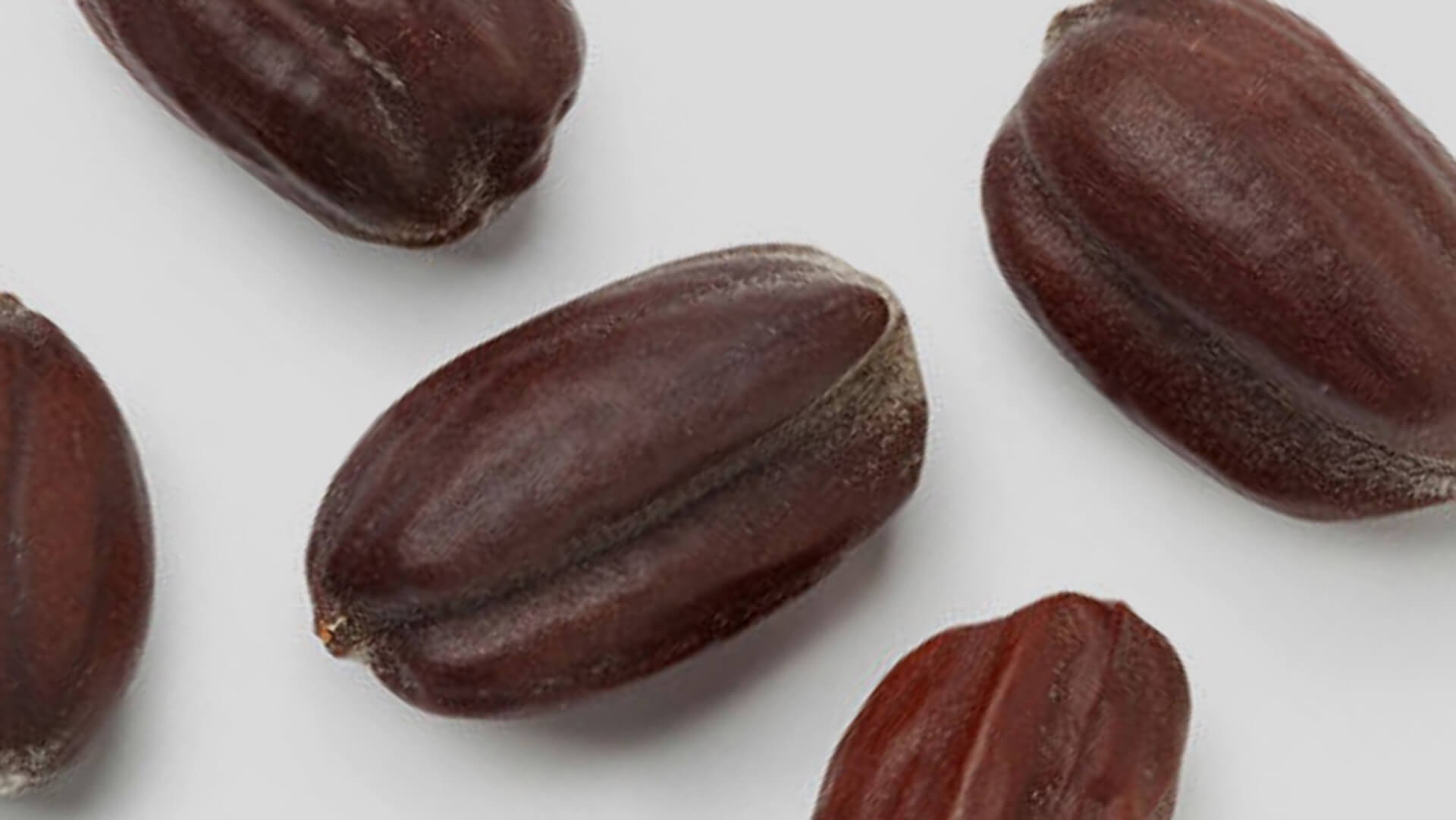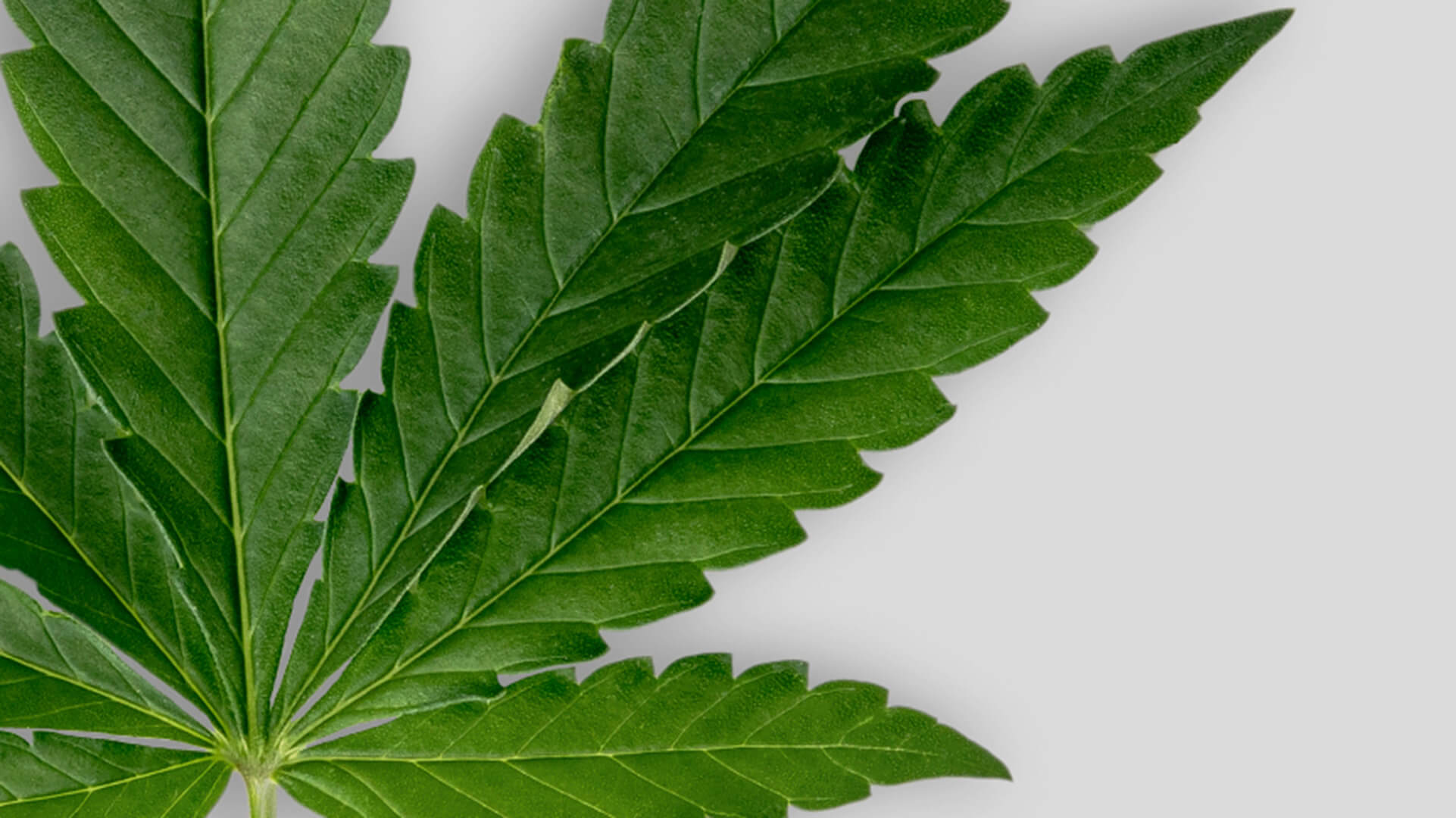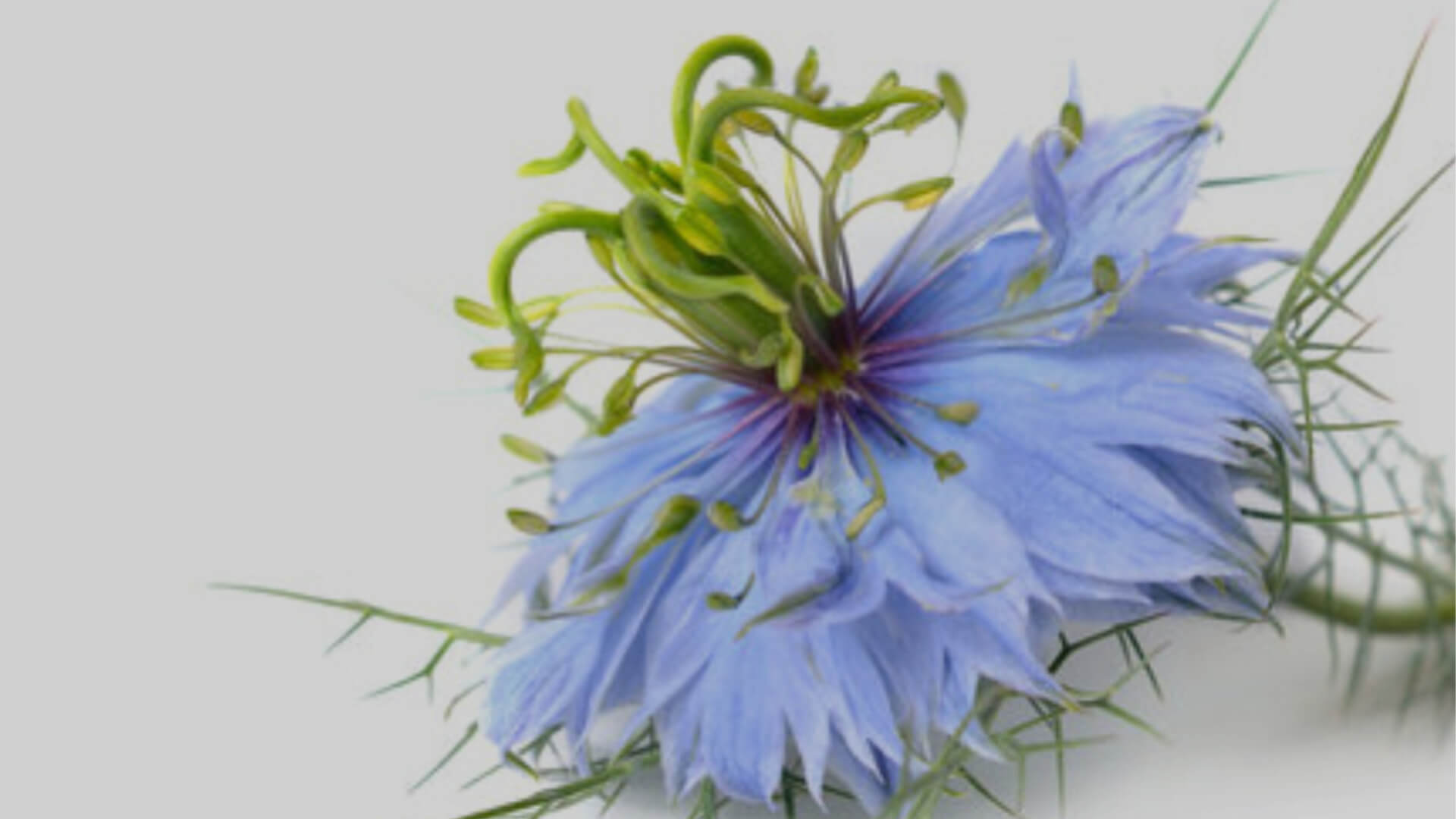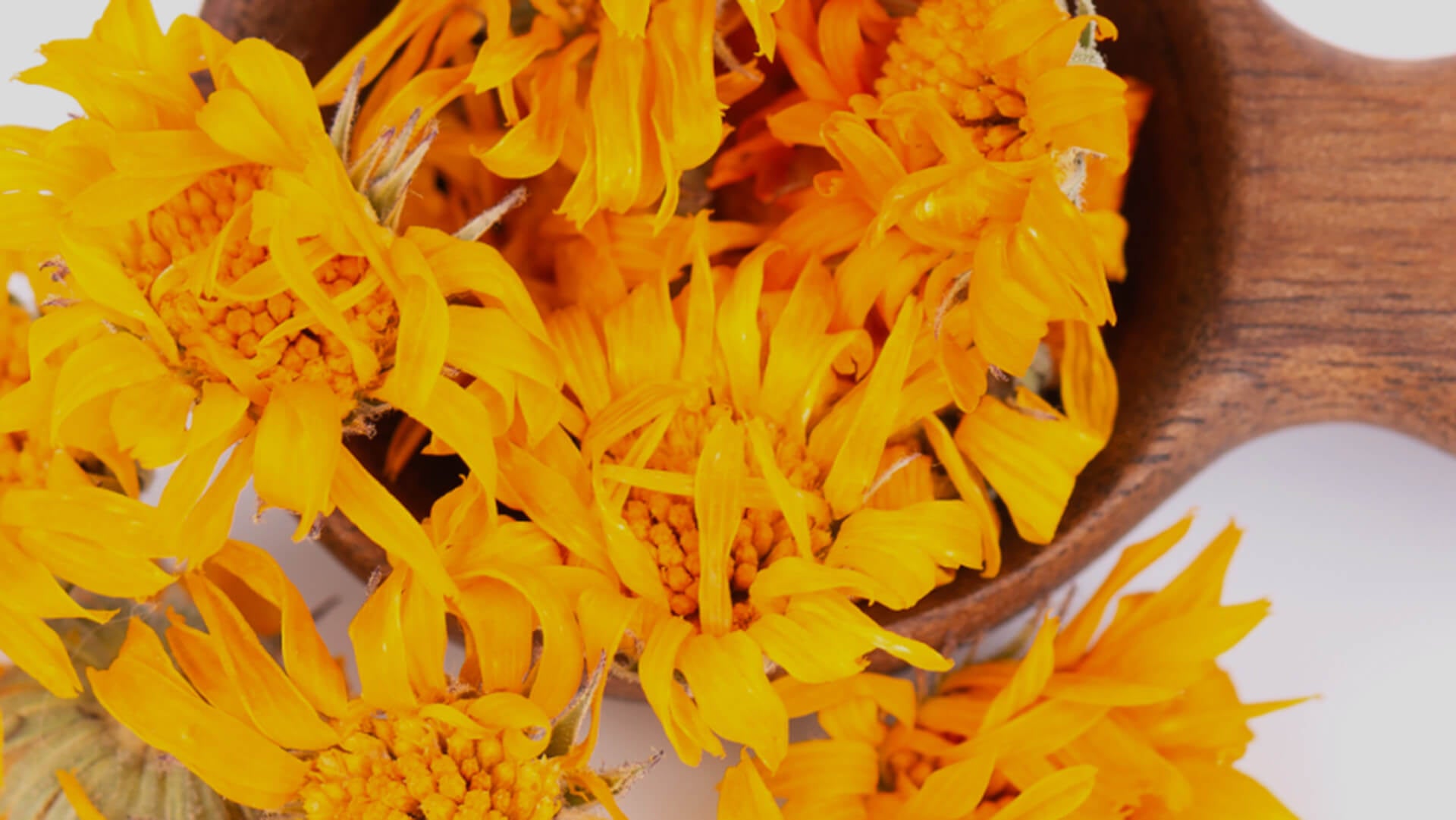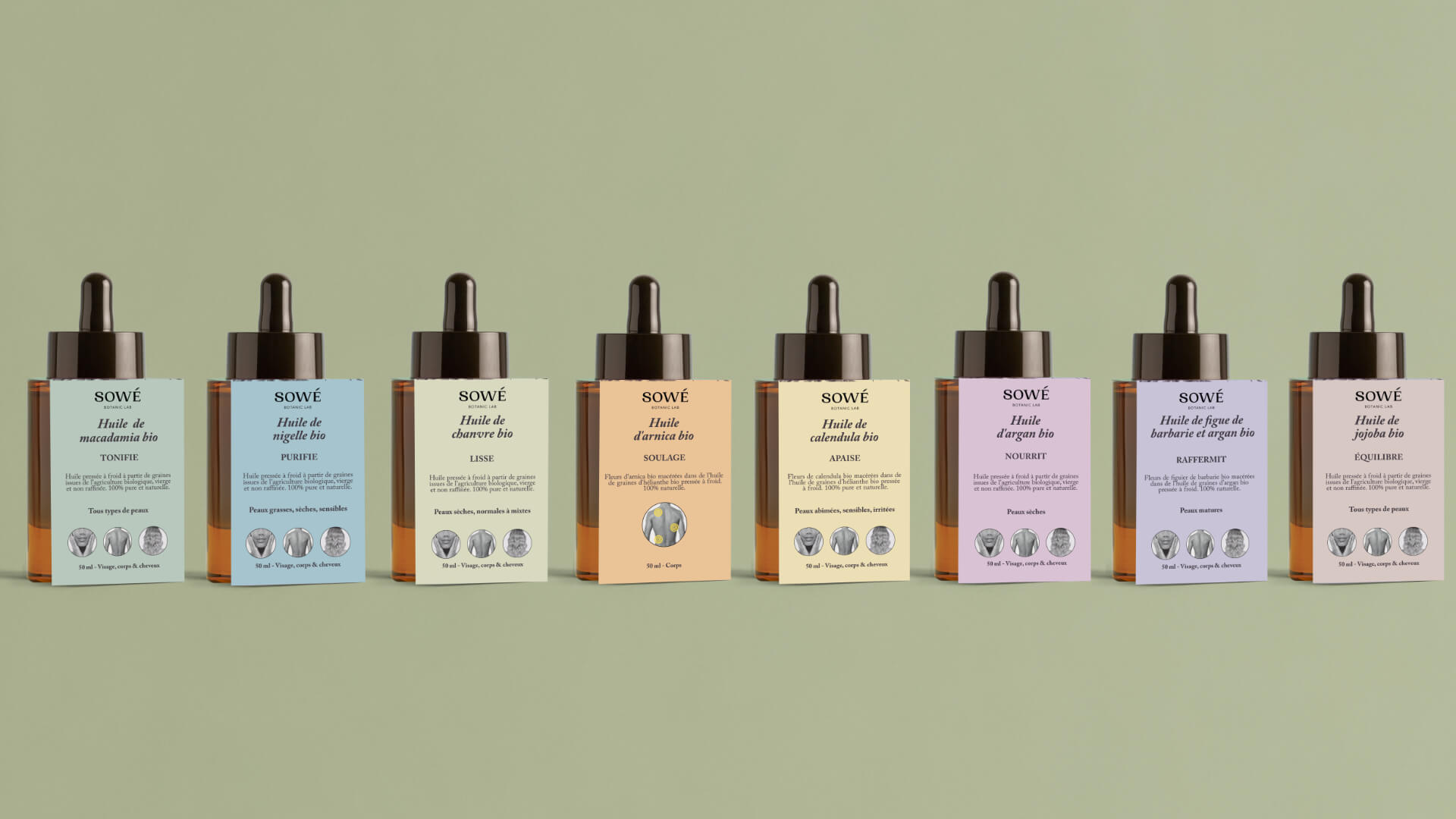
-
Prickly pear and argan oil - Organic - Natural anti-aging care - 50 ml
Regular price €24,90Regular priceUnit price per -
Arnica oil - Organic macerate - Sensitive skin - 50 ml
Regular price €19,90Regular priceUnit price per -
Black seed oil - Organic and cold pressed - Oily, dry and sensitive skin - 50 ml
Regular price €17,90Regular priceUnit price per -
Jojoba oil - Organic and cold-pressed - All skin types - 50 ml
Regular price €19,90Regular priceUnit price per -
Argan oil - Organic and cold pressed - Dry skin - 50 ml
Regular price €22,90Regular priceUnit price per -
Hemp oil - Organic and cold pressed - Dry, normal to mixed, mature skin - 50 ml
Regular price €17,90Regular priceUnit price per -
Macadamia oil - organic and cold-pressed - all skin types
Regular price €18,90Regular priceUnit price per -
Calendula oil - Organic macerate - Dry, irritated, sensitive and damaged skin - 50 ml
Regular price €20,90Regular priceUnit price per -
Jojoba oil - Organic and cold-pressed - All skin types - 50 ml
Regular price €19,90Regular priceUnit price per






 Discovery promo
Discovery promo
 Discovery promo
Discovery promo-
Would you like 2 vegetable oils? We'll give you the second of your choice at half price
Add 2 vegetable oils in your basket and the promotion will apply automatically at checkout
-
Would you like 3 vegetable oils? We'll give you the third of your choice for free
Add 3 vegetable oils in your basket and the promotion will apply automatically at checkout

